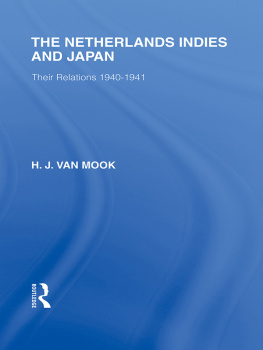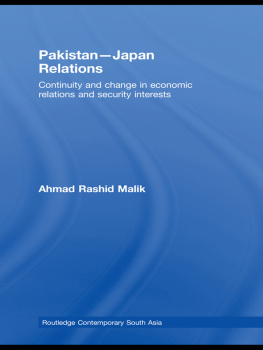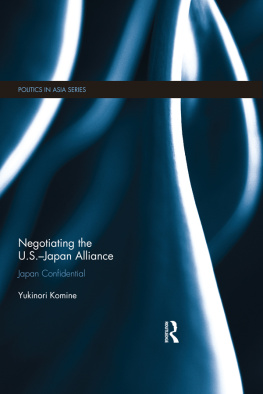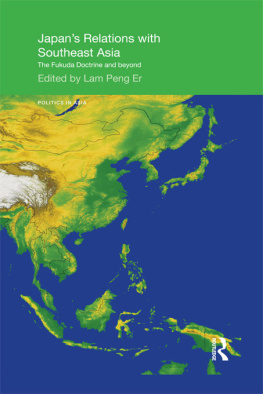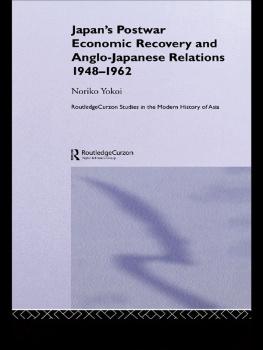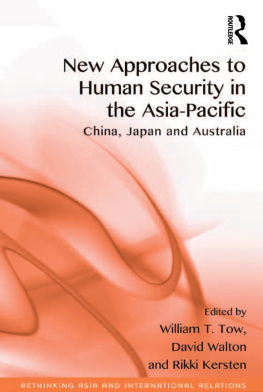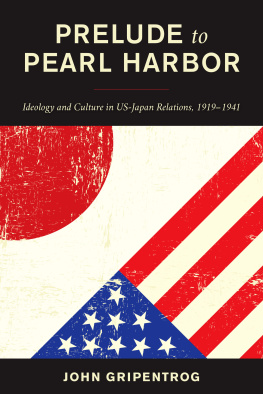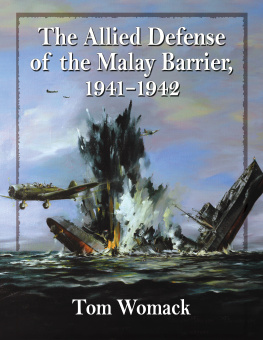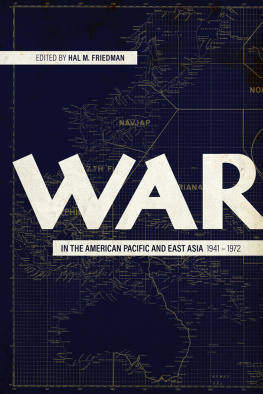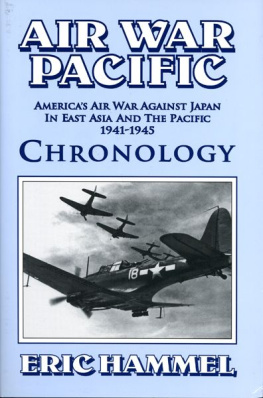ROUTLEDGE LIBRARY EDITIONS: JAPAN
THE NETHERLANDS INDIES AND JAPAN
THE NETHERLANDS INDIES AND JAPAN
Their Relations 19401941
H. J. VAN MOOK
Volume 38

LONDON AND NEW YORK
First published in 1944
This edition first published in 2011
by Routledge
2 Park Square, Milton Park, Abingdon, Oxon, OX14 4RN
Simultaneously published in the USA and Canada
by Routledge
270 Madison Avenue, New York, NY 10016
Routledge is an imprint of the Taylor & Francis Group, an informa business
This edition published in the Taylor & Francis e-Library, 2010.
To purchase your own copy of this or any of Taylor & Francis or Routledges collection of thousands of eBooks please go to www.eBookstore.tandf.co.uk.
1944 George Allen & Unwin Ltd
All rights reserved. No part of this book may be reprinted or reproduced or utilised in any form or by any electronic, mechanical, or other means, now known or hereafter invented, including photocopying and recording, or in any information storage or retrieval system, without permission in writing from the publishers.
British Library Cataloguing in Publication Data
A catalogue record for this book is available from the British Library
ISBN 0-203-84515-3 Master e-book ISBN
ISBN 13: 978-0-415-56498-4 (Set)
eISBN 13: 978-0-203-84317-8 (Set)
ISBN 13: 978-0-415-58764-8 (Volume 38)
elSBN 13: 978-0-203-84515-8 (Volume 38)
Publishers Note
The publisher has gone to great lengths to ensure the quality of this reprint but points out that some imperfections in the original copies may be apparent.
Disclaimer
The publisher has made every effort to trace copyright holders and would welcome correspondence from those they have been unable to trace.
THE NETHERLANDS INDIES AND JAPAN
Their Relations 19401941
by
DR. H.J.VAN MOOK
London
GEORGE ALLEN & UNWIN LTD
FIRST PUBLISHED IN 1944.
All rights reserved
This Book is Produced in CompleteConformity with the AuthorisedEconomy Standards
PREFACE
Send danger from the north unto the south, So honour cross it from the east to west.
HISTORY should be written a long time after it is made, with full access to sources, and dispassionate criticism. On the other hand, it may be useful to relate events that happened, in part at least, beyond the public ken, as soon as circumstances permit and while their recollection is still vivid in the memory of the participants. It can prevent the growth of legends which usually crop up around semi-secret proceedings of political importance and confuse out judgment in after years. A more precise knowledge of past occurrences can aid us in understanding the present and even in shaping our course towards the future.
The story told in this little book is such a chronicle of facts concerning the relations between the Netherlands in Asia and Japan during the last two years before the outbreak of war in the Pacific. Its scope is limited to political and economic affairs of which the author has a first-hand knowledge; comments and background sketching have been restricted to what seemed indispensable. There have been other and more romantic descriptions, but most of the material adduced here has been inaccessible until now; it is published with the kind co-operation of the Netherland Minister of Foreign Affairs, Dr.van Kleffens. It will serve to bring several things into a truer focus.
In the first place these relations have been far too often interpreted as a matter of individual action and skill. People are apt to identify currents of public opinion with the names of those who are the more or less faithful exponents thereof; their sense of the dramatic makes them concentrate their attention on the actors who were picked out by the limelight of publicity, whereas they overlook the part played by the producers and the audience. In a country where public men are not surrounded by black guards or detectives, where the press is uncensored, and where discussion of national and international affairs is free and searchingand all this applied to the Netherlands Indies as well as to the Netherlands international policy cannot be conducted like some sort of mystery by a few adepts; it must be rooted in public sentiment and acceptable to public intelligence. With the Netherlands occupied by Nazi terror, the Government found their main strength in a practically unanimous support by the citizenry of all races in the Indies. Not only did the better educated layers of the populationincluding many hundred thousands of Indonesians and Indo-Chineseapprove; even the masses had become aware of the Japanese danger through four years of spreading reports and rumours from China.
During the negotiations in Batavia the Government and the Netherland delegation were assisted by a large advisory committee of Netherland and Indonesian experts. They found no difficulty in reaching generally agreed conclusions which could be based on well-established and commonly accepted principles of economic policy. These principles are to be found in the memoranda of 3rd February and 6th June 1941. Remarking on the fact that the people in the Indies had shown great restraint and complete confidence in the policy of the Government throughout, it praised, without a dissenting voice, the firm and reasonable attitude maintained during those discussions. It said: Although the negotiations did not lead to a mutually satisfactory conclusion, the preservation of the integrity of the Indies, notwithstanding strong pressure from the other side, and, at the same time, the continuation of normal relations with Japan, constitute an exceptionally favourable result, which is further enhanced by the gain of prestige for the Netherlands Indies within and without.
The same report unanimously paid homage to Her Majesty the Queen, voicing the general admiration and gratitude for Her inspiring leadership. These were no empty words. The fact that the Queen and Her Government had retained their liberty of action was a strong, if not a decisive element in the position of the Indies and their relations with Japan. Had it been otherwise, although the Indies would certainly not have given way like Indo-China, the temptation to interfere, both on the Allied and the enemy side, would have been much greater. The Netherland Government in London needed no outside assistance; they could rely as firmly on public opinion in the Netherlands Indies as on the unbroken resistance in the Netherlands. They were ably seconded by a great Governor-General. The high character and the penetrating intelligence of Jhr. Tjarda van Starkenborgh were a full guarantee against vacillating or erratic decisions, and his wide diplomatic experience gave invaluable guidance to the tactical work of the Netherland delegation. He remained resolute and unshakable to the end.
A rather widespread misconception resulted from one of the more consistent lies of the Japanese propaganda machine. The Netherland attitude was continuously depicted in the Nippon Press as one of endless procrastination and duplicity; newspaper stories elsewhere began to credit us with an almost Machiavellian craftiness. The reader will see for himself that nothing was less true. We certainly wanted to gain time, but we only gained it by a sturdy perseverance, coupled with patience and courteous candour. Delays were caused by Japanese dilatoriness and Japanese provocations; the Netherland position was always clearlyif not bluntly stated. Nothing was done which, from our point of view, might not have been published straight away; the Japanese wanted secrecy, for obvious reasons. Because of this we could not refute propaganda lies, or correct



